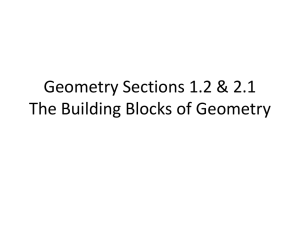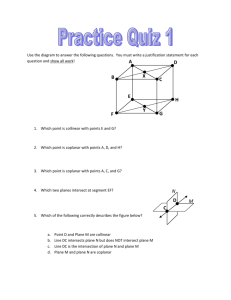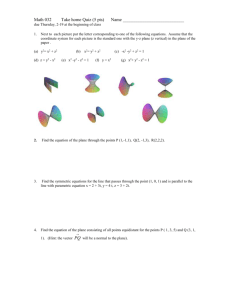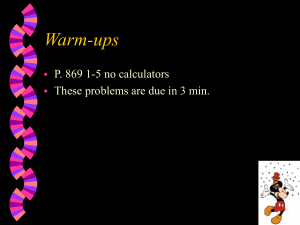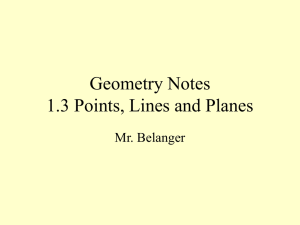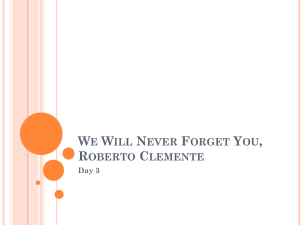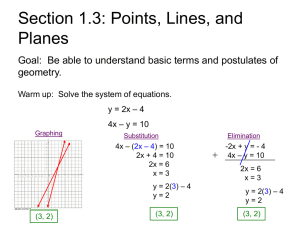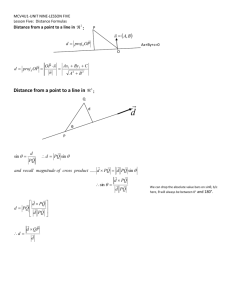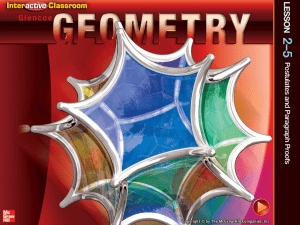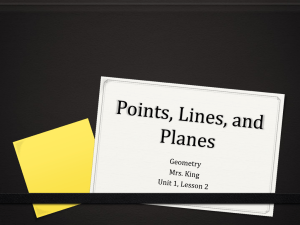Points, Lines, & Planes
advertisement
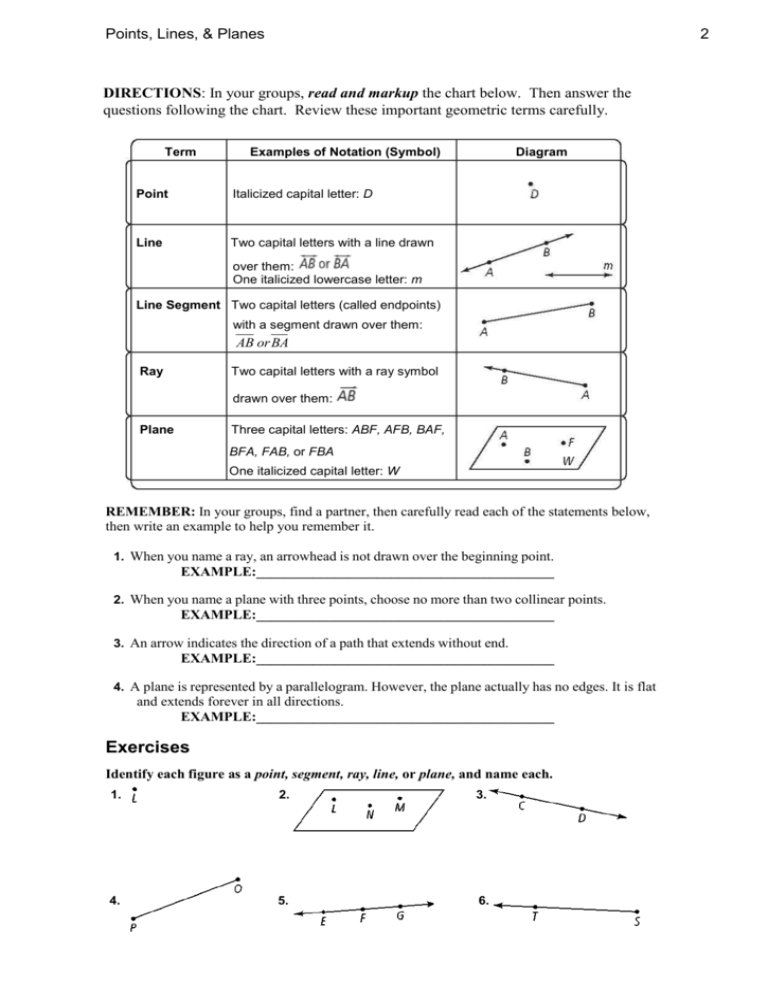
Points, Lines, & Planes 2 DIRECTIONS: In your groups, read and markup the chart below. Then answer the questions following the chart. Review these important geometric terms carefully. Term Examples of Notation (Symbol) Point Italicized capital letter: D Line Two capital letters with a line drawn Diagram over them: One italicized lowercase letter: m Line Segment Two capital letters (called endpoints) with a segment drawn over them: AB orBA Ray Two capital letters with a ray symbol drawn over them: Plane Three capital letters: ABF, AFB, BAF, BFA, FAB, or FBA One italicized capital letter: W REMEMBER: In your groups, find a partner, then carefully read each of the statements below, then write an example to help you remember it. 1. When you name a ray, an arrowhead is not drawn over the beginning point. EXAMPLE:__________________________________________ 2. When you name a plane with three points, choose no more than two collinear points. EXAMPLE:__________________________________________ 3. An arrow indicates the direction of a path that extends without end. EXAMPLE:__________________________________________ 4. A plane is represented by a parallelogram. However, the plane actually has no edges. It is flat and extends forever in all directions. EXAMPLE:__________________________________________ Exercises Identify each figure as a point, segment, ray, line, or plane, and name each. 1. 2. 3. 4. 5. 6. 2 DIRECTIONS: Using a different color pen/pencil, mark up the text below. As the class we make additions, comments, and remarks. Please make sure you use a different color pencil to do all these additional comments. A postulate is a statement that is accepted as true. Postulate 1–4 states that through any three noncollinear points, there is only one plane. Noncollinear points are points that do not all lie on the same line. In the figure at the right, points D, E, and F are noncollinear. These points all lie in one plane. Three noncollinear points lie in only one plane. Three points that are collinear can be contained by more than one plane. In the figure at the right, points P, Q, and R are collinear, and lie in both plane O and plane N. Exercises Identify the plane containing the given points as front, back, left side, right side, top, or bottom. 7. F, G, and X 9. H, I, and Z _____________________ ____________________ 8. F, G, and H ___________________ 10. F, W, and X __________________ 11. I, W, and Z ______________________ 12. Z, X, and Y____________________ 13. H, G, and X_____________________ 14. W, Y, and Z ___________________ Use the figure at the right to determine how many planes contain the given group of points. Note that pierces the plane at R, coplanar with X, and is not does not intersect . 15. C, D, and E 16. D, E, and F 17. C, G, E, and F 18. C and F
